According to a recent report, the global home security system market is expected to grow from $56.9 billion in 2022 to $84.4 billion by 2027. The growth is driven by factors like the emergence of wireless technologies and the Internet of Things (IoT) and the increased awareness of security issues.
One thing the COVID-19 pandemic has taught people is that safety and security are something to take seriously. People are spending more time in their homes and want to feel as safe as possible while there.
However, that doesn’t necessarily mean home security systems will sell themselves. It’s a competitive market, and some homeowners remain suspicious of companies trying to sell services. So how can you earn the trust of homeowners and improve your business results? Here are some tips for selling home security systems.
1. Understand Your Market
Many businesses and salespeople assume selling home security systems is the same as selling IT solutions, but there are some critical differences. Most of today’s consumers need a variety of IT solutions, like laptops, smartphones, and tablets, to function in their daily lives. Security solutions are more about protection and peace of mind. The difference translates to buyers’ motivations and mindsets.
It’s also important to note that the security market is divided into several categories, including standard and advanced solutions. Standard solutions have been around for years, such as audible alarms when there’s a potential intruder. More advanced solutions, like remote monitoring, are designed to provide a higher level of service to clients.
2. Know Your Solutions Intimately
For businesses wanting to achieve success selling home security systems, it’s essential that salespeople have an intimate understanding of the solutions being offered. Regardless of the product, the salesperson should understand the problem it’s designed to address and how it solves the issue. This is why industry and market research, training sessions, and product demos are critical.
Commitment to product knowledge should be ongoing for sales teams. Through continuing education, salespeople can maintain alignment with product development and support teams as well as remain updated on new features and updates. Remember, it’s going to be tough making a sale if your salespeople don’t fully understand how your solutions can address your customer’s problems.
3. Put Yourself in the Customer’s Shoes
There are a lot of players in the security market. Some buyers may feel overwhelmed by the many options. As a salesperson, the best approach is to put yourself in the customer’s shoes and act as a trusted adviser instead of simply a security company representative.
One of the first items on a salesperson’s list should be to find out the homeowner’s goals and concerns. Explain how various product offerings can meet those goals. A useful strategy is to let customers know how certain home security solutions have been effective for other customers with similar needs.
Instead of telling the customer what they need or listing your product’s features and benefits, ask them a lot of questions. Most people would rather talk than listen to a salesperson go on and on about an unfamiliar product.
4. Ditch the Sales Pitch
As advanced technologies and services continue to emerge and transform the home security market, the nature of the sales pitch is changing as well. Specifically, today’s consumers no longer respond well to high-pressure sales tactics. This is an old-school way of doing things, and it’s a turn-off for more and more people.
Establishing trust and rapport with potential customers is the best way to earn their business, even if this may not happen overnight. If you are an established company and or partner with trusted alarm station monitoring services, make sure you emphasize these points.
Instead of pushing a customer to “buy” your home security services, most companies find better success educating consumers. This happens in a variety of ways.
You’ll want to establish a strong online presence because most customers are going to research you before they agree to give you their business. Create a website, social media pages, and a Google Business Profile. These efforts will add value when potential customers look to validate your company and can read the online feedback of other customers.
5. Be Professional and Ethical
The role of a salesperson has evolved significantly over the past decade, but it still requires professionalism and ethics. Selling home security systems entails a big responsibility. You are selling the promise of security and safety in a person’s home. Knowing this, you need to remain as professional as possible and maintain a high level of customer service and ethics.
How can you be professional? While customers might not like sales pitches, they will want to sit down and read about what you have to offer. Make sure you have professionally printed, high-quality brochures that are simple to understand, and make sure you have the correct permits or licenses to do any door-to-door soliciting.
Finally, never promise something you can’t deliver. Be specific and truthful about what your system can and can’t do. However, you can set yourself apart from the competition by emphasizing your qualifications. For example, if you partner with a UL-Certified Central Station, this is something you can mention and explain.
Central Station Alarm Monitoring Services for Your Home Security Company
One of the primary selling points of your home security business should be alarm and video monitoring services, which provide clients with the highest level of protection and peace of mind. Quick Response is a leading provider of these services and can act as your business partner.
With over four decades of experience in the alarm industry, Quick Response is a TMA Five-Diamond Certified central station. Our monitoring and dispatching specialists are available 24/7. We enhance the overall value of your brand by acting as an extension of your business. Contact us today to learn more about our monitoring solutions.




